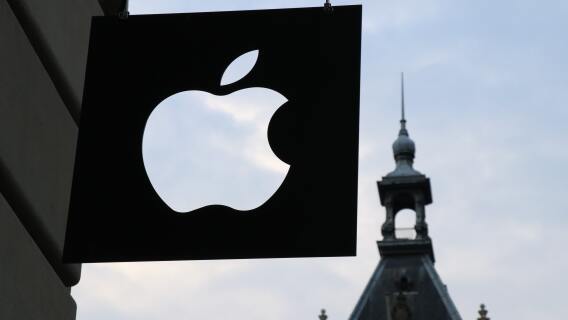I was recently asked about my biggest actionable investment idea learned from attending this year’s Berkshire Hathaway Annual Shareholder Meeting in Omaha.
My response was that I developed a much greater appreciation of the value of Apple (AAPL) and that valuation may not be quite as important for Apple shares as it is for other stocks. As a value investor, this last sentence is almost alarming to write. So, what is going on here?
In walking through Omaha’s CMI Heath convention hall, I saw first-hand the wide array of companies owned by Berkshire: Clayton Homes (mobile homes), Lubrizol (industrial chemicals), Dairy Queen (ice cream/fast food), NetJets (executive jet rentals), Brooks (shoes) and Geico (insurance), among dozens of others. They each have attractive business traits, including strong brands, healthy competitive moats and enduring relevance.
Yet, even compared to all of these “Buffett” companies, Apple stands out as clearly exceptional. Its brand is at or near the top of all global brands in terms of recognition and reputation for quality. Apple products (and services) are well-known for their ease of use, reliability, engineering quality and high level of security and privacy. It doesn’t hurt that Apple products have more aesthetically pleasing designs than competitors.
[text_ad]
In return, customers reward Apple with intense loyalty. One study showed that Apple has a 90% retention rate – almost unheard of in a consumer product. Buffett said at the meeting, “If you’re an Apple user and somebody offers you $10,000, but the only proviso is they’ll take away your iPhone and you’ll never be able to buy another, you’re not going to take it.” (This also suggests impressive pricing power).
Loyalty and brand quality may be valuable traits, but without relevance, the market size for the product would be too small to matter much. Here, the iPhone has another stand-out feature: its smartphone product category is highly relevant.
Smartphones have become an indispensable tool in people’s daily lives. Owners depend on smartphones for staying in touch with personal and professional contacts, and for entertainment, news, taking/sending pictures and videos, moving their money, watching sports, running their businesses and dozens of other relevant daily uses. With this exceptionally high level of relevance, the market for smartphones is conceivably every non-infant person on Earth. And, this is proven in reality: an estimated 6 billion people (close to 75% of the global population), have a smartphone. Further, there is no effective replacement for a smartphone, so the product has little risk of fading away. While other Berkshire companies have generally high degrees of relevance, few if any are as personally relevant as the smartphone.
Another valuable trait is that customers have only one smartphone. Customers may purchase their industrial chemicals, ice cream, batteries, shoes, car insurance and nearly all other Berkshire products from several providers during any given month, so it is easy to shift one’s business around. With only one smartphone, customers are locking themselves in. And, if that smartphone works well, customers won’t change. Given its earlier-mentioned loyalty, Apple has effectively eliminated its competition. The iPhone, at the personal level, is a monopoly.
Combined, the enduring relevance of smartphones with customers’ loyalty to the iPhone and the one-per-person monopoly creates one of the largest and most durable revenue and profit streams in business.
Apple’s annual revenues will approach $400 billion this year, making it one of the top three in the United States. Its profit margins, including its 43% gross margin and 26% net margin, are wide and resilient. With minimal capital spending requirements, nearly 100% of its net income is converted into free cash flow – totaling over $100 billion last year. Apple is as close to a cash machine as can be found in business.
Backing Apple is a fortress balance sheet. Management, led by Tim Cook, is exceptional in its ability to maintain all of the earlier-mentioned traits while also continuing to build new growth potential.
So, is it “value investor heresy” to like Apple as a company? Not at all. But what about Apple shares? This is a different question entirely. Berkshire first purchased Apple shares in 2016, when the stock carried a much lower valuation multiple. Later purchases also were at lower valuations. With the sharp share price increase in recent years, the shares are no bargain for new investors. Valuation may not matter as much, but it still matters. At 189/share, the stock trades at 23x EV/EBITDA and 29x per-share earnings. This high valuation is a clear impediment to generating attractive long-term returns, even with all of the impressive business traits.
So, for us, we are true believers in the Apple business but will wait patiently for a lower price to be buyers of Apple shares.
Cabot Value Investor and the Cabot Turnaround Letter offer stock ideas, commentary on the markets and other topics relevant to contrarian and value investors, all supported by our rigorous and disciplined methodology, research and analysis. Let us help you sort through the market to find the best contrarian and value stocks.
[author_ad]

